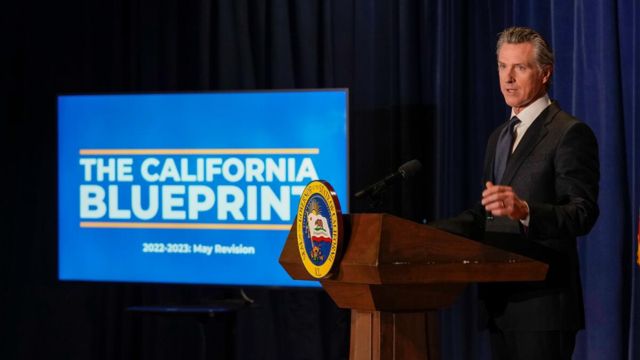CALIFORNIA, USA —
The Golden State has been chronically behind schedule with its annual report on financial health for the past six years running, despite its authorities’ best efforts to portray the state as having the fifth-largest economy in the world.
Among other reasons, a state software transition that began in 2005—the year the first YouTube video was uploaded—was blamed in the most recent public report from 2022 for the chronic lateness of the reports.
When it comes time for California to borrow money, the state’s credit rating is crucial, so it’s necessary that the state releases an annual comprehensive financial report that tries to shed light on the state’s financial health.
Bond certificates and federal funds necessitate reporting by April 1 and March 31, respectively, notwithstanding the lack of a particular date under state law. According to the office of State Controller Malia Cohen, they normally aim to reach the deadline of March 31.

The report has failed to meet such deadlines for the sixth year in a row. March of this year saw the publication of the most recent report, which covers the fiscal year ending in 2022.
The “unanticipated” extension of personal and corporate income taxes in 2023 by both the federal government and California, according to Cohen’s office, and the continued difficulties with agencies’ transition to FI$Cal, the state’s replacement budgeting and finance platform, were the reasons given for the postponement of the 2021-2022 report.
SEE MORE –
Crash! Iconic Toy Industry Giant Files for Bankruptcy in Painful Financial Move
To consolidate all of California’s financial and budgeting processes, the state initiated the FI$Cal revamp in 2005. By this point, FI$Cal could legally cast a ballot if it were a human. Although the state auditor found that state agencies had difficulty utilizing the system, the project was officially deemed complete as of July 2022 by the legislature.
The state auditor voiced concern in the 2022 report that ongoing delays could impact California’s capacity to borrow money at low interest rates and maintain a high credit rating.
“The availability of data from a number of other sources describing California’s financial position and ability to meet its bond obligations” has prevented the reporting delays from negatively impacting California’s bond ratings, according to the controller’s office, who informed CalMatters via email.
Following his appointment as controller last year, Cohen promised in the March 2022 report that he would restore the reports’ previous trajectory by March 2026.
“Has taken substantial measures to mitigate the root causes” of delays, according to her office’s statement, which included optimizing technology and streamlining processes.
In the 2023–24 budget, the state additionally increased funding for the controller’s office to help with workload and offer technical support to state ministries.
According to the email from the controller’s office, “these efforts are part of a comprehensive plan to return the State to timely reporting over the next several reporting cycles.”
California was placed 48th in financial transparency in April, according to a report by the Illinois-based government transparency group Truth in Accounting. The ranking was based on a variety of factors, including the judgment of the state auditor and the timeliness of reporting.
